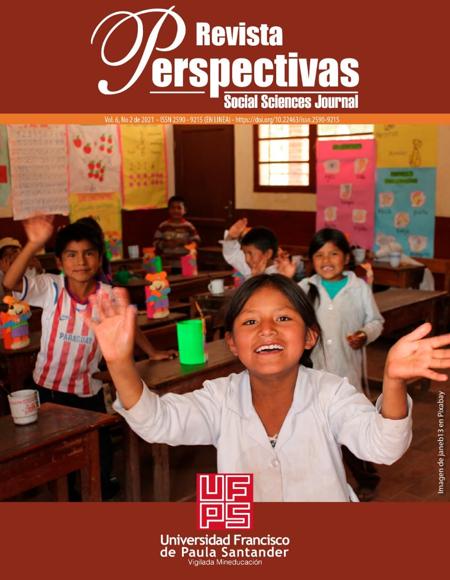La Gestión Escolar y su Relación con el Liderazgo para el Aprendizaje desde la Percepción del Director
La Gestión Escolar y su Relación con el Liderazgo para el Aprendizaje desde la Percepción del Director
Main Article Content
This study seeks to establish the relationships between school management and leadership for learning, based
on the role of leadership as an exercise in transformation towards the improvement of schools. All of these
from the perceptions of some principals of public schools in Bogotá.
Murillo (2006); Hallinger (1997); Leinthwood, (2006); Hopkins and Reynolds (2001); Garay and Uribe
(2010); Stoll and Temperley (2009), among others, formulate that the management of the direction plays a
relevant and primordial role in the school transformation. In addition to the previous ones, the OECD report
(2013), indicates that the administrative model of education must be linked to the pedagogical one since such
effort has a significant impact on student learning; In addition, principals who exercise positive pedagogical
management improve administrative management (Weinstein, 2009).
This research was carried out under the qualitative approach, following the phenomenological method,
using the semi-structured interview as a technique that was applied to four school directors from prominent
institutions in different locations in Bogotá. The systematization and analysis of the information was done
under the categorization and to validate it, it was triangulated with the field notes and the literature. As main
findings, a fragmented directive management in its conception as in its application is evidenced, as well as
an inadequate perspective on leadership for learning, based on the parameters and functions of the position,
established in the legal documents.
Downloads
Article Details
Albert, G. M. J. (2007). La investigación educativa: claves teóricas. Madrid: McGraw Hill.
Bolivar, A. (2010). Liderazgo para el aprendizaje. Organización y Gestión Educativa, (1), 15–20.
Bush, T. (2019). Mejora escolar y modelos de liderazgo: hacia la comprensión de un liderazgo efectivo. Revista Eletrônica de Educação, 13(1), 107-122. DOI: https://doi.org/10.14244/198271993067
Fullan, M. (Ed.). (2014). Teacher development and educational change. Routledge. DOI: https://doi.org/10.4324/9781315870700
Fullan, M. (2017). Liderar los aprendizajes: acciones concretas en pos de la mejora escolar. Mejoramiento y Liderazgo en la Escuela: Once Miradas, 182-192.
Garay, S y Uribe, M. (2006). Dirección escolar como factor de eficacia y cambio: Situación de la dirección escolar en Chile. REICE: Revista
Electrónica Iberoamericana sobre Calidad, Eficacia y Cambio en Educación.
Hallinger, P. & Heck, R. (1996). Reevaluación de papel del director en la eficacia escolar: Una revisión de la investigación empírica, 1980–
Administración Educativa Trimestral, 32(1), 5-44.
Hallinger, P., (2010). Leadership for learning: What we have learned from 30 years of empirical
research Centre for Strategic Education Seminar Series Paper No. 196, julio 2010.
Hopkins, D. & Reynolds, D. (2001). El pasado, presente y futuro de la mejora escolar: hacia la
tercera edad. Revista británica de investigación educativa, 27 (4), 459-475.
Hopkins, D. (2019). Mejora escolar, liderazgo y reforma sistémica: una retrospectiva (Mejora DOI: https://doi.org/10.14244/198271993075
escolar, liderazgo y reforma sistémica: una retrospectiva). Revista Eletrônica de Educação ,
(1), 26-57.McREL International / Cambridge: Pearson Publishing.
Leithwood, K (2009). ¿Qué sabemos sobre liderazgo educativo?. En Kenneth Leithwood. Aportes
desde la investigación. Santiago de Chile: Área de Educación Fundación Chile
Murillo, F. (2006). Dirección escolar para el cambio: Del liderazgo transformacional al liderazgo
distribuido. REICE: Revista Iberoamericana sobre Calidad, Eficacia y Cambio en Educación, 4(4), 11-24.
OCDE (2009). Creating Effective Teaching and Learning Environments: First Results from
TALIS. Recuperado de http://www.oecd.org/ TALIS
Pozner, P. (2000). El directivo como gestor de aprendizajes escolares. Argentina: AIQUE.
Robinson, V. (2011) Student-centered leadership. San Francisco: Jossey-Bass.
Stoll, L. y Temperley, J. (2009). Mejorar el liderazgo escolar: Herramientas de trabajo. Recuperado de
http://www.oecd.org/dataoecd/32/9/43913363. pdf
Weinstein, J. (2014). Políticas hacia el liderazgo directivo escolar en Chile: Una mirada comparada con otros sistemas escolares de América Latina. Psicoperspectivas, 13(3), 52-68. DOI: https://doi.org/10.5027/psicoperspectivas-Vol13-Issue3-fulltext-468
Young, M (2017). Desarrollo y formación en liderazgo educativo: historia y prácticas contemporáneas
en Estados Unidos. En Weistein, J (editores)., Cómo cultivar el liderazgo educativo: trece miradas (p.p 35-83), Chile: Universidad Diego Portales







